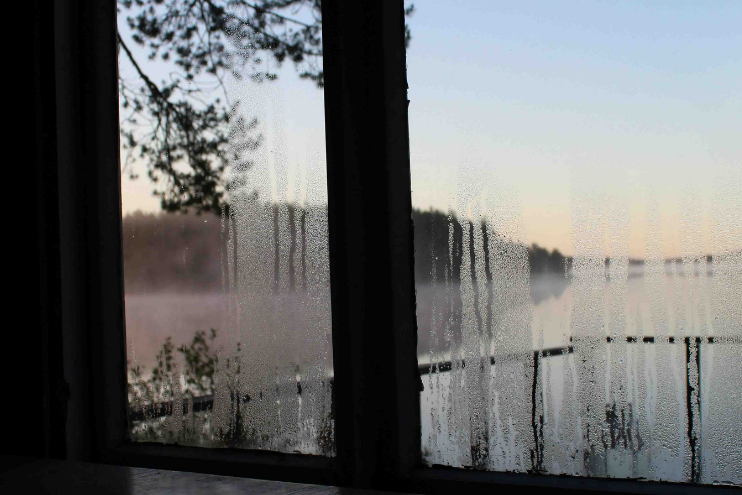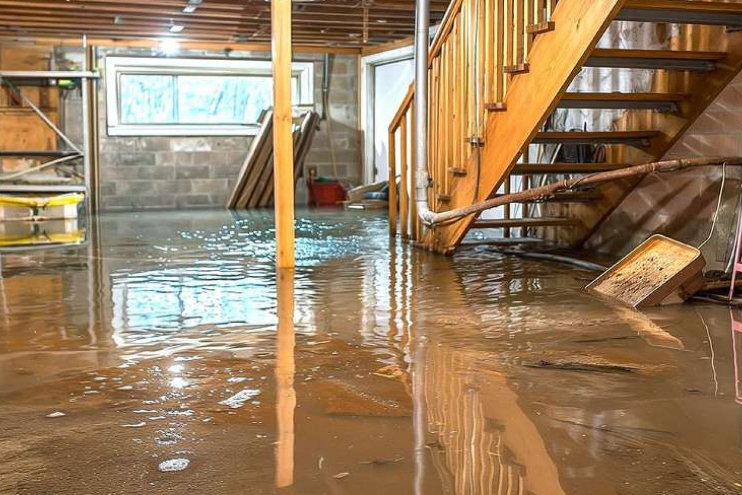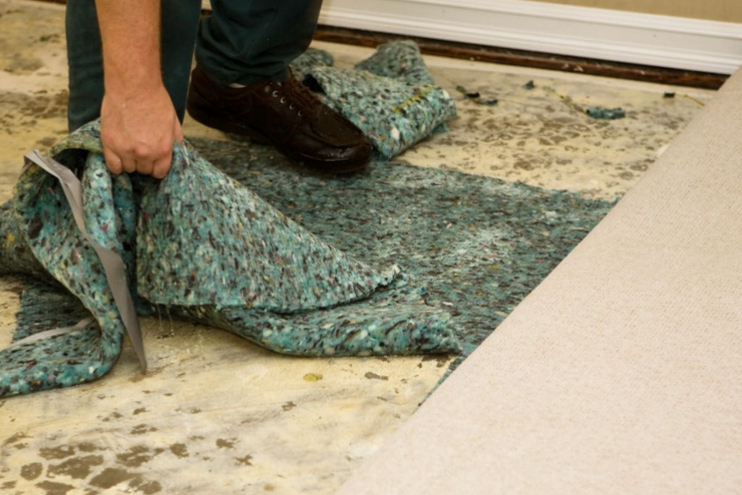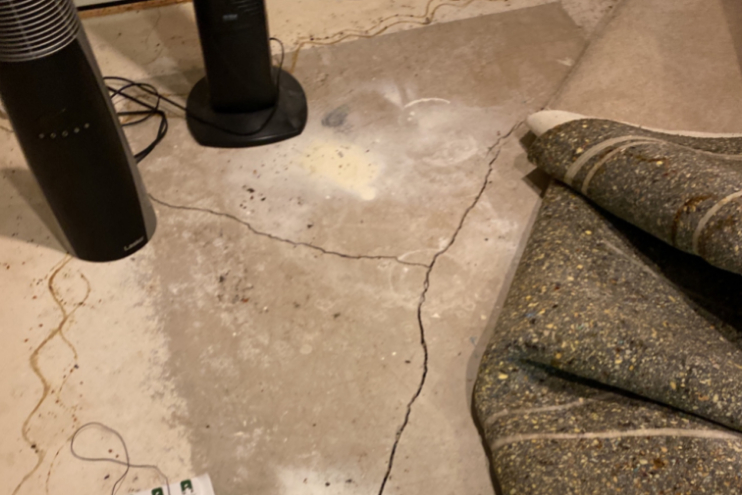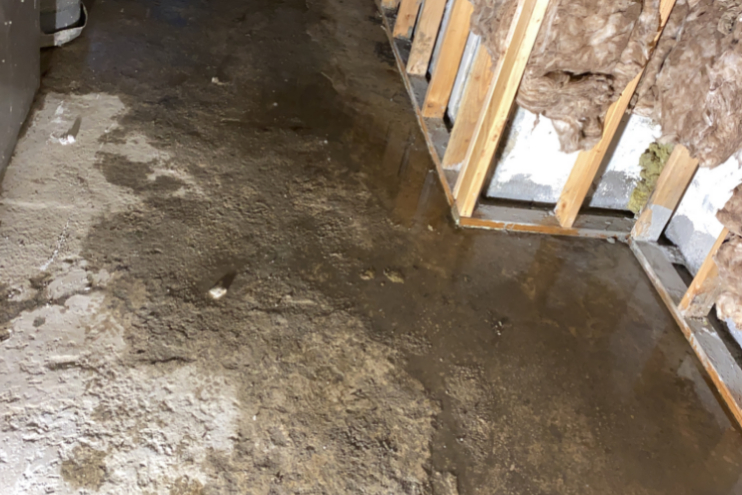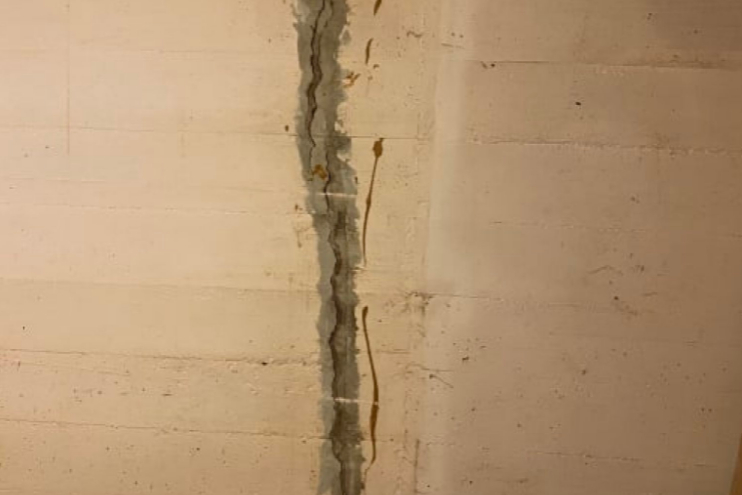
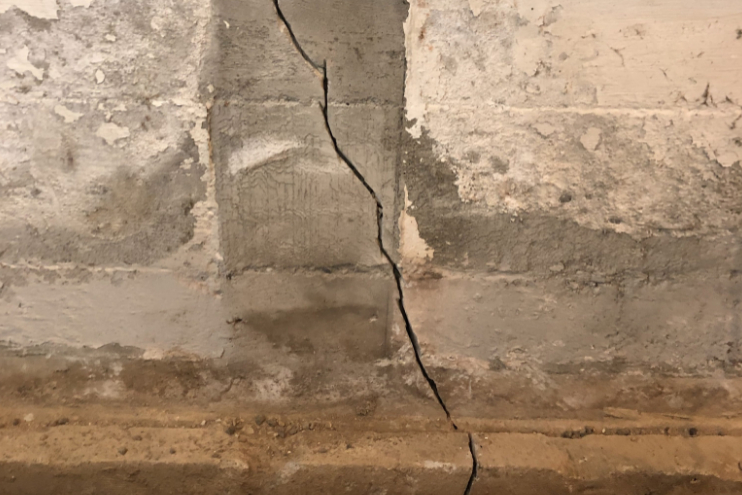
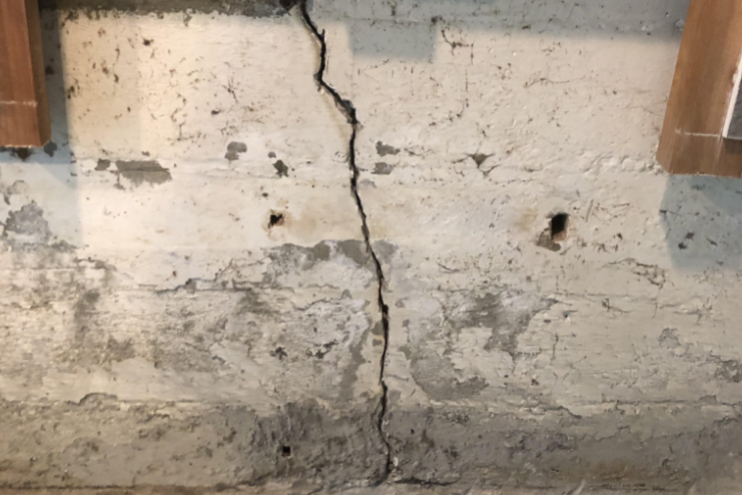
What to Look out For
Leaks
If you discover random pools of water on your basement floor, you may be dealing with a leak. Leaks often result from cracks in your basement walls or floor, and they may also indicate deeper structural issues within your foundation or drainage system.
Don't ignore these signs. Simply placing a bucket under a leak won’t resolve the underlying issue. Even a minor leak can become catastrophic during a severe storm, potentially leading to flooding that damages carpets, furniture, and other valuables stored in the basement.
Cracks
Cracks in basement walls can be a sign of foundation issues or general wear and tear as your home ages. Addressing these cracks promptly is vital to avoiding costly repairs and preventing basement flooding.
Cracks vary in severity. Hairline cracks, which measure less than 1/8 of an inch, are usually not a cause for concern but could produce minor leaks. Cracks wider than 3/8 of an inch, especially those spanning both the wall and floor, require immediate attention. These larger cracks can signal serious structural damage and increase the risk of significant water intrusion.
Uneven Foundation
Your foundation is key to keeping your house stable and moisture-free. If it becomes uneven or develops cracks, you could face major issues. At best, an uneven foundation might be a tripping hazard. At worst, it can lead to flooding and structural instability.
Unfortunately, foundation shifts are often hard to detect without professional help. The best way to determine if your foundation is compromised is to hire a qualified inspector. They’ll assess the situation and recommend permanent solutions tailored to your specific needs.
Causes of Basement Wall Cracks
Moisture
Excess moisture is one of the primary culprits behind basement cracks. Water can seep into the soil beneath your foundation, either washing away parts of it or compacting it tightly, both of which create pressure against the foundation. This pressure, known as hydrostatic pressure, can cause basement walls and floors to crack.
When the soil washes away, voids form beneath the foundation, leading to cracks in the basement floor. In winter, moisture trapped within the concrete’s pores can freeze and expand, worsening existing cracks and potentially creating new ones.
Structural Issues
Pre-existing structural issues can be exacerbated by moisture, making cracks worse over time. Older homes, in particular, are more susceptible to foundation wear, and cracks that have been present for years may begin to widen. Even newer homes can experience foundation problems, especially if the landscape holds more moisture than the foundation can handle.
Regular maintenance and inspections are key to addressing these structural vulnerabilities before they worsen.
How to Fix Basement Wall Cracks
Addressing basement wall cracks is essential to preventing further damage. Small cracks can grow over time, leading to more serious foundational issues. Even hairline fractures should be addressed quickly to avoid future problems.
Fixing cracks is more than just a cosmetic task. The root issue may be an uneven foundation, and that requires professional attention. A foundation expert can thoroughly inspect your basement, identify any underlying issues, and recommend the best solutions to permanently repair the cracks.
FAQs About Basement Water Cracks
Permanently Waterproof Your Basement
Spotting a crack along your basement walls is the first step in preventing potential flooding. Even the smallest cracks can become serious problems if left unchecked. Our Interior Environmental Professionals can seal these cracks effectively and ensure your basement stays dry.
With their expertise in water intrusion and waterproofing, they provide long-lasting solutions to protect your home. Say goodbye to concerns about flooded basements or worsening cracks—our professionals have you covered for good.

